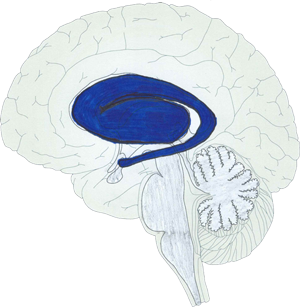The brain is not fully developed until the age of 25 and teenagers are known to have impulse control issues. One part of the brain, called the striatum, has a reward – related function. Rewards are desirable outcomes that serve to influence behavior so the information conveyed by rewards is important for learning and deciding between different courses of action.
 Scientist have found this “reward-center” is more active in adolescents than in children or adults by using brain scans called magnetic resonance imaging (MRI) to track the level of oxygen in different parts of the brain while the study participant plays a video games with a reward component. (1) The parts of the brain engaged during the task requiring more energy in the form of oxygen allowing the researchers to identify those areas.
Scientist have found this “reward-center” is more active in adolescents than in children or adults by using brain scans called magnetic resonance imaging (MRI) to track the level of oxygen in different parts of the brain while the study participant plays a video games with a reward component. (1) The parts of the brain engaged during the task requiring more energy in the form of oxygen allowing the researchers to identify those areas.
This increased activity in the striatum is thought to be part of a natural transition from childhood to becoming an adult. The adolescent years are a time of experimentation and boundary-testing, therefore a degree of risk-taking is expected.
Concern arises when the risk-taking behavior is outside the norm. Sleep deprivation negatively effects this “reward-center.” (2) Therefore, a teen who is sleep deprived is less likely to completely perceive the risk associated with making a certain decision.
Risk-taking includes those behaviors that carry an increase in the possibility of death or illness. These behaviors include engagement in tobacco, alcohol, or drug use; driving while sleepy; violence or sexual activities. These behaviors have been associated with student sleep-wake patterns that result in less total sleep time, or in those students with the greater difference between school-night and weekend bedtimes.(3) While some have speculated drug use is the cause of sleep loss, there is evidence to suggest the opposite is true.(4) Lack of sleep can lead a teenager to seek out a substance (i.e. caffeine), in order to overcome their tiredness or to address the mood disturbances stemming from a sleep deprived state.(5)
A study involving 12,154 high school students found teenagers obtaining < 8 hours of sleep compared to those obtaining 8+ were more likely to engage in physical fights, smoking, alcohol and marijuana use and sexual activity.(6) In addition to risk-taking behaviors, this study found teens are not getting enough sleep. More than two-thirds of the teens in this study reported obtaining less than the recommended amount of sleep. Students obtaining less sleep were more likely to report feeling sad or hopeless and had thoughts of suicide. Also, those teenagers who obtained less sleep were more likely to drink pop and spend more of their day on an electronic device and were less likely to be physically active.
- van Leijenhorst et al. What motivates the adolescent? Brain regions mediating reward sensitivity across adolescence. Cereb. Cortex, 2010 Jan;20(1):61-9.
- Holm, Stephanie M. et al. Reward-Related Brain Function and Sleep in Pre/Early Pubertal and Mid/Late Pubertal Adolescents. Journal of Adolescent Health , Volume 45 , Issue 4 , 326 – 334.
- Mednick et al. The spread of sleep loss influences drug use in adolescent social networks. PLoS One. 2010 Mar 19;5(3):e9775. doi: 10.1371/journal.pone.0009775.
- Whalen et al. Caffeine consumption, sleep, and affect in the natural environments of depressed youth and healthy controls. J Pediatr Psychol. 2008 May;33(4):358-67. Epub 2007 Oct 18.
- O’Brien EM, Mindell JA. Sleep and risk-taking behavior in adolescents. Behav Sleep Med. 2005;3(3):113–133.
- McKnight Eily et al Preventative medicine 2011 Oct;53(4-5):271-3. doi: 10.1016/j.ypmed.2011.06.020. Epub 2011 Relationships between hours of sleep and health-risk behaviors in US adolescent students.
